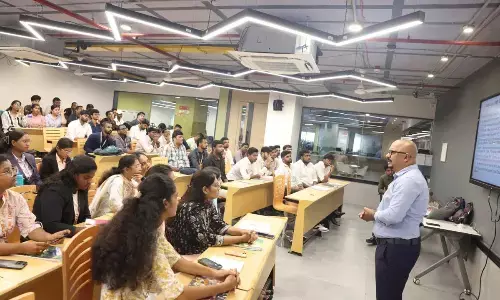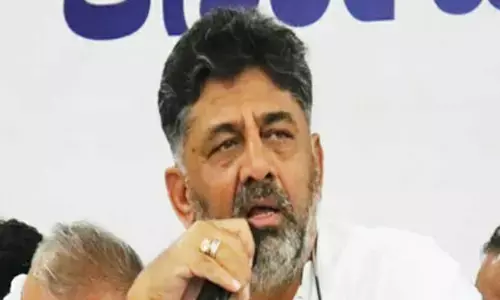Why should redevelopment of 7 south Delhi colonies be allowed?

The Delhi High Court on Thursday asked the Centre why it should allow the redevelopment of seven south Delhi colonies after it was told that the clearance for the project was granted on the basis of an Environment Impact Assessment EIA report that had copypasted its contents from another project report in Tamil Nadu
HC’s poser to Centre
New Delhi: The Delhi High Court on Thursday asked the Centre why it should allow the redevelopment of seven south Delhi colonies after it was told that the clearance for the project was granted on the basis of an Environment Impact Assessment (EIA) report that had "copy-pasted" its contents from another project report in Tamil Nadu.
A bench of Chief Justice Rajendra Menon and Justice V K Rao said if it allowed the project to go ahead and later it was found that the environment clearance (EC) was wrongly granted, everything would have to be started afresh, "leading to wastage of public money".
"Better to stop now, when the loss would be only Rs 150 crore, than stop later, when the loss would be much more," the court said, while refusing to issue any direction allowing commencement of work at Nauroji Nagar, one of the seven colonies, as sought by the National Buildings Construction Corporation (NBCC).
The observation of the bench came after hearing the submissions made by one of the two amici curiae (friends of the court) appointed by it to look into the clearances granted to the project that entailed the felling of over 16,500 trees.
Amicus curiae Gautam Bhan, an urban planning expert, told the bench the EIA report for Nauroji Nagar contained several portions "copy-pasted" from the EIA report seeking clearance for a mine in Tamil Nadu and based on it, the EC was granted to fell trees and go ahead with the work.
Pointing out that the names of lakes in Tamil Nadu were mentioned in the EIA report for Nauroji Nagar, Bhan said it clearly showed "non-application of mind". The NBCC, on the other hand, claimed that these were "typographical errors".
The bench was not convinced by the NBCC's explanation and said even the presence of such typographical errors showed non-application of mind. Bhan also told the bench that the entire redevelopment project of the seven colonies was integrated and therefore, an integrated EC was required and not separate clearances, as granted in the instant case.
He also questioned how the Centre could allow cutting of trees for such a project in Delhi, which was categorised as one of the most polluted cities in the world and was also fast running out of water.
The NBCC, which is executing the project along with the Central Public Works Department (CPWD), was seeking an order from the bench, clarifying that it could continue with its work at Nauroji Nagar, where it is constructing a commercial hub, including a World Trade Centre.
The NBCC said it had excavated the site to a large extent and if left open, the rainwater going into it could lead to caving in of the Ring Road running adjacent to it.









